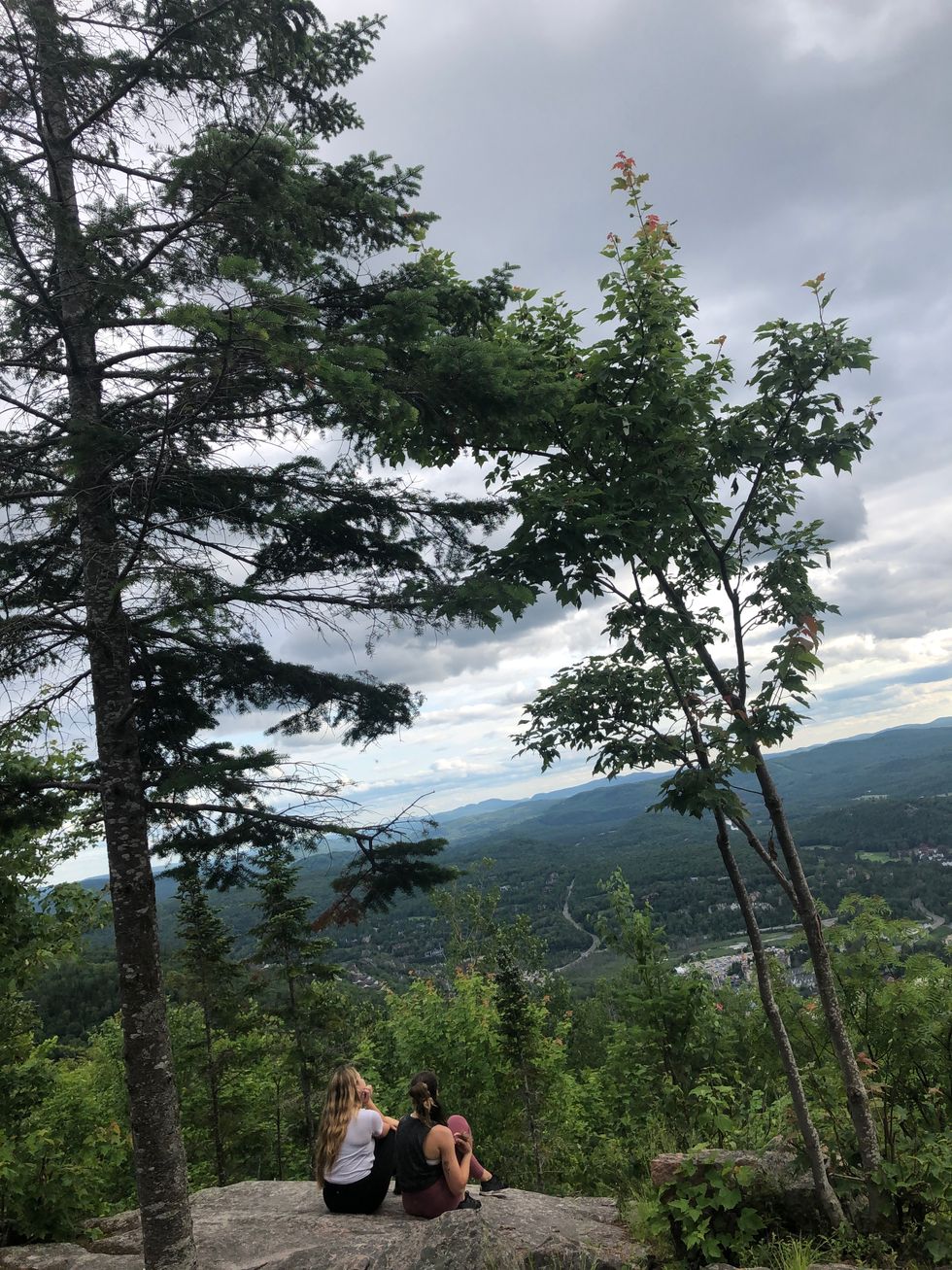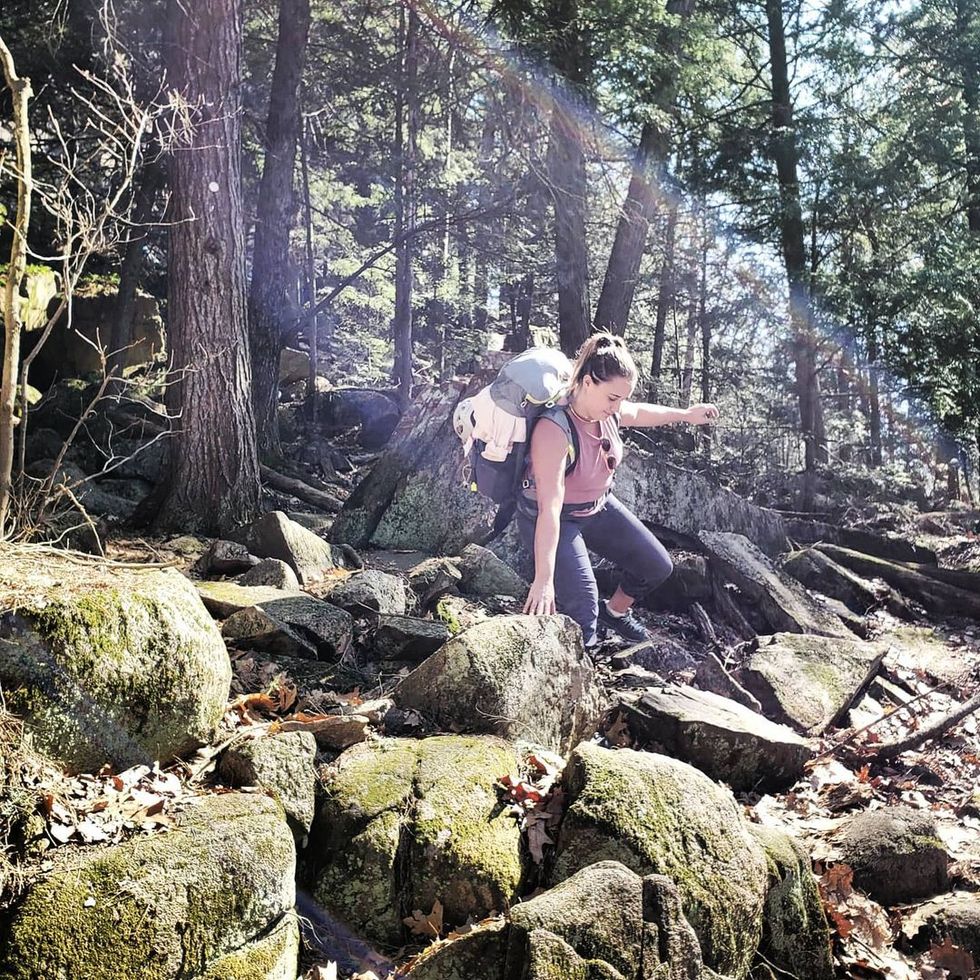Editor's Choice: Quebec's Summer Forecast Just Dropped & It's Going To Be A 'Sizzling' Season
"On eclipse day, your priority is to see the eclipse!"
Telepun, an Alabama-based plastic surgeon, eclipse chaser, photographer and creator of the Solar Eclipse Timer who has witnessed five eclipses from Zambia to Argentina, suggests eclipse-viewing is a more careful art than some might assume.
 Courtesy of Dr. Gordon Telepun
Courtesy of Dr. Gordon Telepun
His advice could be especially useful for Montrealers who, in 2024, might be tempted to stay put to catch a glimpse of the celestial event, but will likely have a better experience if they're willing to take a bit of a drive.
Here's what you need to know about the solar eclipse crossing Quebec.
When is the solar eclipse happening?
The April 8, 2024 eclipse will cross North America beginning in the Mexican state of Sinaloa and continuing across the country to the state of Coahuila before crossing over Texas, the U.S. midwest, upstate New York, northern New England and southern Quebec.
It will then pass over Maine and the Atlantic provinces.
"In 2024 the Point of Greatest Eclipse is in Mexico," Dr. Telepun told MTL Blog.
 Courtesy of Dr. Gordon Telepun
Courtesy of Dr. Gordon Telepun
That's the spot "where the axis of the Moon’s shadow passes closest to the center of the Earth," according to NASA.
"This is very close to where the maximum totality duration can be observed," which, for the 2024 eclipse is "about" four minutes and 28 seconds, Telepun explained.
But "as you move more northeast in the path the totality duration decreases," he continued.
How and where can Quebecers get the best eclipse views?
Telepun's advice: try to get out of Montreal.
"If you stay in the city of Montreal for the eclipse you accept a
huge decrease in the totality duration because Montreal is located on the northern limit of the path," he said.
He explained that the eclipse centerline — or, according to EclipseWise.com, the "locus of points of intersection of the axis of the Moon's shadow with the surface of Earth" — will be southeast of Montreal near the border with the U.S.
 Dr. Gordon Telepun via Eclipsophile
Dr. Gordon Telepun via Eclipsophile
There, he said, the totality duration will be three minutes and 31 seconds. By contrast, on Montreal's Îles-des-Sœurs, the totality duration will be about one minute and 47 seconds.
"So if you drive just 80 to 90 km to the southeast, to the centerline, you can have almost two minutes more of totality to enjoy," said Telepun.
"My recommendation is not to stay in Montreal if possible, move south. But be aware that everyone is going to have the same idea, so there will be a lot of traffic before and after the eclipse."
As for what to bring to get the best photos of the event, he recommends a torpedo level and a compass.
"The torpedo level is used to level your tripods for guided eclipse photography and the compass is used to assess the view from your observation site."
 Courtesy of Dr. Gordon Telepun
Courtesy of Dr. Gordon Telepun
"You need to know which way to face and to be sure you have an unobstructed view for both the compass direction and the altitude of totality."
Telepun's Solar Eclipse Timer app can be used to accurately measure the progress of the eclipse.
He posts additional information, tutorials and advice on his YouTube channel.
What are Quebecers' chances of actually getting a good view?
Jay Anderson is the co-proprietor of the site Eclipsophile, where he documents and forecasts eclipse visibility based on climate data.
Telepun references his work in the AccuWeather blog post.
Anderson told MTL Blog that, unsurprisingly, April's regularly cloudy skies could present complications for prospective eclipse-viewers.
"However, the situation is not bleak," he wrote in an email, "for the cloud along the St Lawrence Valley is lower on average than over the nearby U.S. states and those parts of Canada farther east."
 Courtesy of Jay Anderson
Courtesy of Jay Anderson
"From Cornwall, in Ontario, to Newport and Granby, the cloud cover is lighter by about 10 percent than surrounding regions."
Anderson estimated a "40 percent chance of seeing the eclipse without leaving home."
Quebecers can increase their chances by about 15%, he said, "by relocating a day’s drive away if clouds threaten."
 Courtesy of Jay Anderson
Courtesy of Jay Anderson
"When 2024 comes around, those determined to see the eclipse might want to watch the forecasts a day or two ahead and 'discover' old friends who live in more promising locations to go to visit," he suggested.
"An eclipse is a striking and marvelous event, well worth the effort to see."
"The next central eclipse for Montreal, an annular eclipse, does not arrive until August 2093."




 Dr. Gordon Telepun via Eclipsophile
Dr. Gordon Telepun via Eclipsophile
 Courtesy of Jay Anderson
Courtesy of Jay Anderson Courtesy of Jay Anderson
Courtesy of Jay Anderson